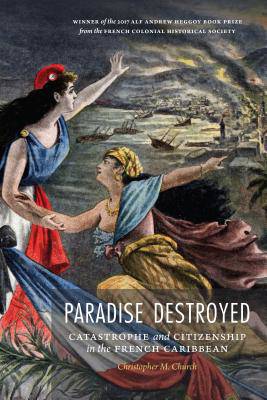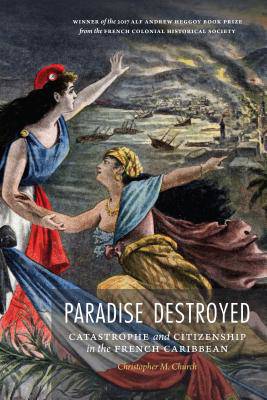
- Retrait gratuit dans votre magasin Club
- 7.000.000 titres dans notre catalogue
- Payer en toute sécurité
- Toujours un magasin près de chez vous
- Retrait gratuit dans votre magasin Club
- 7.000.0000 titres dans notre catalogue
- Payer en toute sécurité
- Toujours un magasin près de chez vous
53,45 €
+ 106 points
Format
Description
2017 Alf Andrew Heggoy Book Prize Winner
Over a span of thirty years in the late nineteenth and early twentieth centuries, the French Caribbean islands of Martinique and Guadeloupe endured natural catastrophes from all the elements--earth, wind, fire, and water--as well as a collapsing sugar industry, civil unrest, and political intrigue. These disasters thrust a long history of societal and economic inequities into the public sphere as officials and citizens weighed the importance of social welfare, exploitative economic practices, citizenship rights, racism, and governmental responsibility. Paradise Destroyed explores the impact of natural and man-made disasters in the turn-of-the-century French Caribbean, examining the social, economic, and political implications of shared citizenship in times of civil unrest. French nationalists projected a fantasy of assimilation onto the Caribbean, where the predominately nonwhite population received full French citizenship and governmental representation. When disaster struck in the faraway French West Indies--whether the whirlwinds of a hurricane or a vast workers' strike--France faced a tempest at home as politicians, journalists, and economists, along with the general population, debated the role of the French state not only in the Antilles but in their own lives as well. Environmental disasters brought to the fore existing racial and social tensions and severely tested France's ideological convictions of assimilation and citizenship. Christopher M. Church shows how France's "old colonies" subscribed to a definition of tropical French-ness amid the sociopolitical and cultural struggles of a fin de siècle France riddled with social unrest and political divisions.Spécifications
Parties prenantes
- Auteur(s) :
- Editeur:
Contenu
- Nombre de pages :
- 324
- Langue:
- Anglais
- Collection :
Caractéristiques
- EAN:
- 9781496213921
- Date de parution :
- 01-06-19
- Format:
- Livre broché
- Format numérique:
- Trade paperback (VS)
- Dimensions :
- 152 mm x 229 mm
- Poids :
- 476 g

Les avis
Nous publions uniquement les avis qui respectent les conditions requises. Consultez nos conditions pour les avis.






